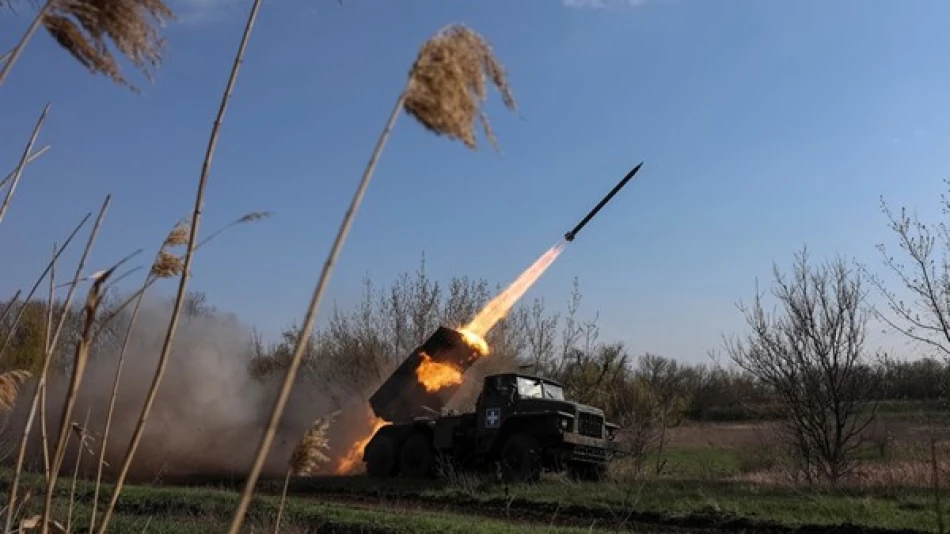
Zelenskyy Lays Foundation for Peace Talks with Russia Amid Ongoing Conflict
Ukraine's Zelensky Signals Major Shift: Current Battle Lines Should Define Peace Talks
Ukrainian President Volodymyr Zelensky has made a significant strategic pivot, declaring that current frontline positions in the war with Russia should serve as the foundation for peace negotiations. Speaking from Brussels on Sunday, Zelensky's remarks represent a potential departure from Ukraine's previous insistence on full territorial restoration and suggest growing pragmatism as the conflict approaches its third year.
A Pragmatic Turn in Ukrainian Strategy
Zelensky's statement marks a notable evolution in Ukraine's negotiating position. "We need real negotiations, and this means we can start from where the confrontation lines are now," he told reporters, adding that European leaders support this approach. This represents a stark contrast to earlier Ukrainian positions that demanded complete Russian withdrawal from all occupied territories, including Crimea.
The Ukrainian leader emphasized that any ceasefire must be solidified before substantive negotiations on a final agreement can begin, indicating a structured approach to potential peace talks.
Reading the Strategic Tea Leaves
Winter Realities and Battlefield Dynamics
This shift comes as Ukraine faces mounting challenges on multiple fronts. The country's energy infrastructure remains under constant Russian bombardment, creating humanitarian pressures that may be influencing Kiev's calculus. Additionally, the frontlines have largely stabilized over recent months, with neither side achieving significant territorial gains despite continued fighting.
International Support Considerations
Zelensky's reference to European backing suggests coordinated diplomatic groundwork. With the incoming Trump administration in the United States potentially favoring quicker resolution to the conflict, Ukraine may be positioning itself ahead of shifting international dynamics. European leaders, facing economic pressures from prolonged conflict and energy disruptions, appear increasingly receptive to negotiated settlements.
Historical Precedents and Strategic Implications
This approach mirrors other frozen conflict resolutions, from the Korean armistice to various Middle Eastern ceasefires that eventually became de facto borders. However, Ukraine's situation differs significantly due to the scale of territorial occupation and the involvement of major powers.
The timing also reflects lessons from previous negotiation attempts. The failed Istanbul talks in early 2022 and various diplomatic initiatives have demonstrated that without stable frontlines and credible enforcement mechanisms, peace agreements remain fragile.
What This Means for Stakeholders
For Ukraine
This position allows Ukraine to consolidate gains while stopping further territorial losses. It also provides breathing space to rebuild infrastructure and military capabilities under international security guarantees that would likely accompany any agreement.
For Russia
Moscow gains de facto recognition of territorial acquisitions while avoiding the costs of continued offensive operations. However, Russia may interpret this as weakness and push for additional concessions before agreeing to talks.
For International Partners
Western allies can redirect resources from military aid to reconstruction assistance while maintaining deterrent capabilities. This shift could also help manage domestic political pressures regarding prolonged support for Ukraine.
The Road Ahead
While Zelensky's comments represent a significant diplomatic opening, substantial obstacles remain. Russia has not indicated readiness for serious negotiations, and internal Ukrainian politics may resist territorial concessions. The success of this approach will depend heavily on the strength of international security guarantees and the credibility of enforcement mechanisms.
The Ukrainian president's pragmatic turn reflects the harsh realities of prolonged conflict, but whether it leads to sustainable peace will depend on Moscow's response and the international community's commitment to underwriting any eventual agreement.
Most Viewed News

 Layla Al Mansoori
Layla Al Mansoori






